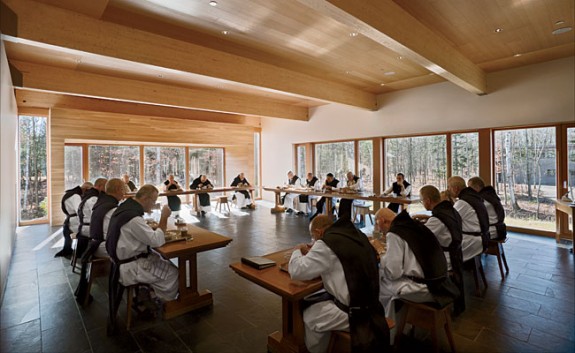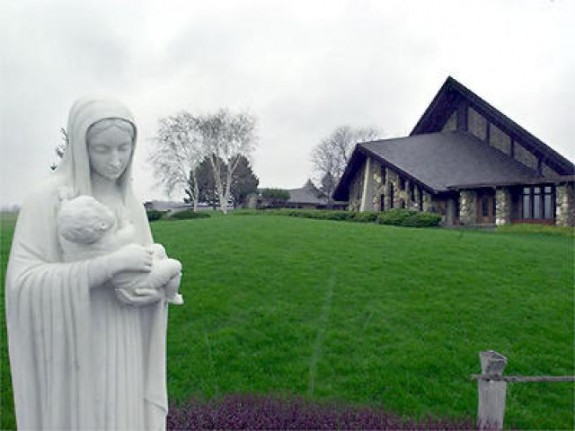
What’s it like to live with a vow of silence? Writer Jeremy Mesiano-Crookston wanted to find out, and so began an e-mail exchange with several monks at Oka Abbey in Quebec, the oldest Trappist monastery in America.
It’s a fascinating dialogue, and sheds light on a world many of us don’t know:
Are all your actions done in total silence? How do monks coordinate work? There must be a small amount of words that are absolutely necessary to get through a day?
Father B: No, not all work is done in silence, though we try to keep a silent atmosphere whatever we do, even common work. We talk to convey necessary information; the point is to get to the point and stick to the point and the capacity for that varies from person to person. The ideal isn’t to see who keeps the strictest silence but for all to help maintain a silent atmosphere.
This says on one level that silence is in our lives to create an ambience of recollection so I’ll remember and honor God’s presence. On another level, silence reminds me that the misuse of words, the abuse of language can also be the sinful abuse of people; silence for us means nottalking, more than not making noise… On yet another level, silence means listening. We follow the Rule of St. Benedict and the first word of that Rule is “Listen.” That’s the great ethical element of silence: to check my words and listen to another point of view. I’ll never have any real peace should my sense of well-being depend on soundless peace. When I can learn the patience of receiving, in an unthreatened way, what I’d rather not hear, then I can have a real measure of peace in any situation.
Father D: Monasteries value silence a lot. We have in the order, to this effect, a sign language written into a book that details meanings of signs to be used when monks need to communicate. It is still being used, increasingly less used though. This fact underscores our value for silence because it enables us easily to turn our attention actively to God and sense his presence among us and in the whole world. It is as if we are talking to God and have less time for other talks. We do not make a vow of silence, however, as people seem to believe. Silence is an aid and not an end in itself. It aids prayer, communal and private, and seeks to reduce distractions. Silence aids deeper meditation and contemplation.
After a certain length of time, does it simply become natural to be so silent? Or does it always remain something that you have to be very mindful of? And do you consider it as a beneficial practice for all people? Or something attached to your faith? A form of sacrifice of words?
Father A: I would say that silence has become natural for me. This is not the case with most communities of monks. In community, we tend to struggle with silence. A human being is a social creature, and we find that, while maintaining silence alone is natural and a blessing, cultivating silence in a group is hard and a discipline we have to commit to over and over again.
I would not speak of the “sacrifice of words” except in relatively rare instances when a passion moves me to speak and I struggle to hold my tongue. The silence which is my natural habitat is not created by forcibly sacrificing anything. When a man and woman meet and fall in love they begin to talk. They talk and talk and talk all day long and can’t wait to meet again to talk some more. They talk for hours together, and never tire of talking and so talk late into the night, until they become intimate—and then they don’t talk anymore. Neither would describe intimacy as “the sacrifice of words” and a monk is not inclined to speak about his intimacy with God in this way. Is silence beneficial for all people? I would say the cultivation of silence is indispensable to being human. People sometimes talk as if they were “looking for silence,” as if silence had gone away or they had misplaced it somewhere. But it is hardly something they could have misplaced. Silence is the infinite horizon against which is set every word they have ever spoken, and they can’t find it? Not to worry—it will find them.











